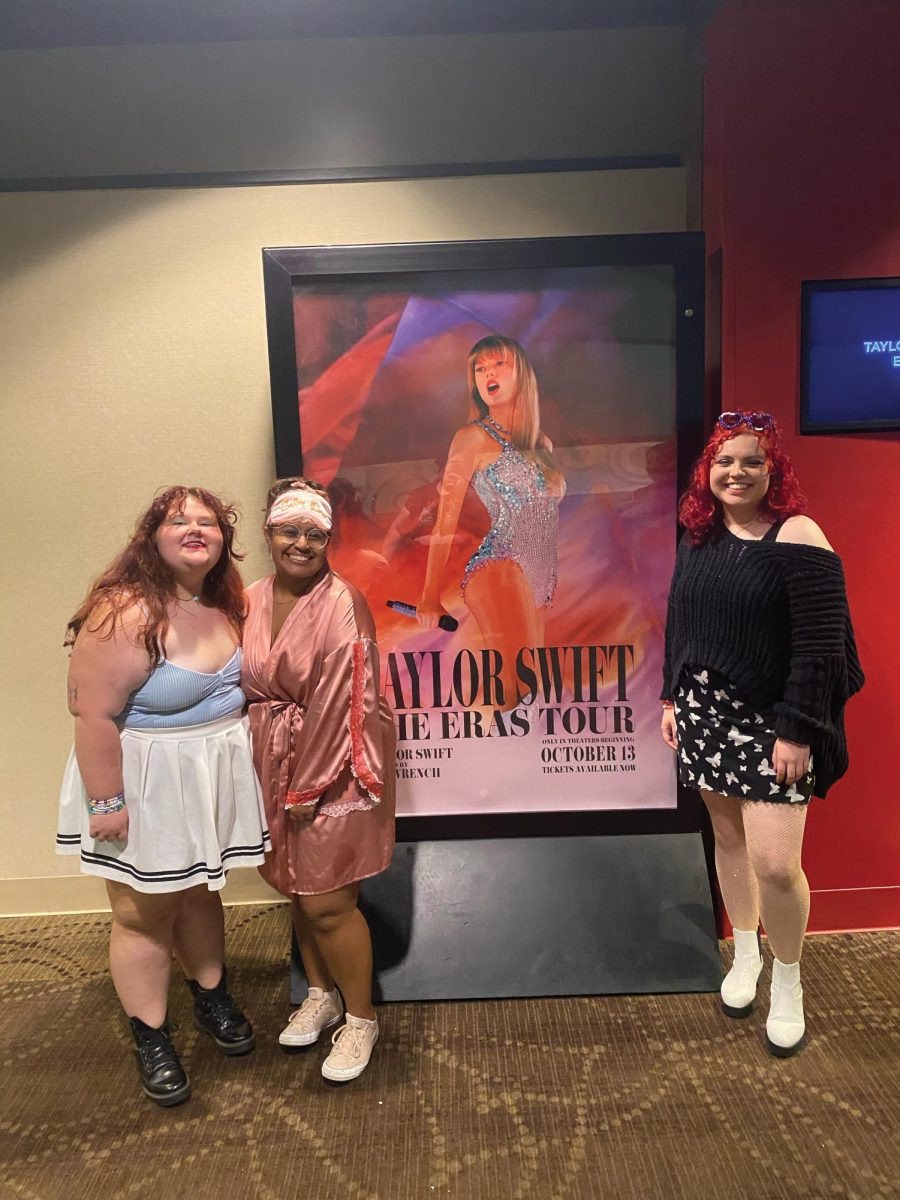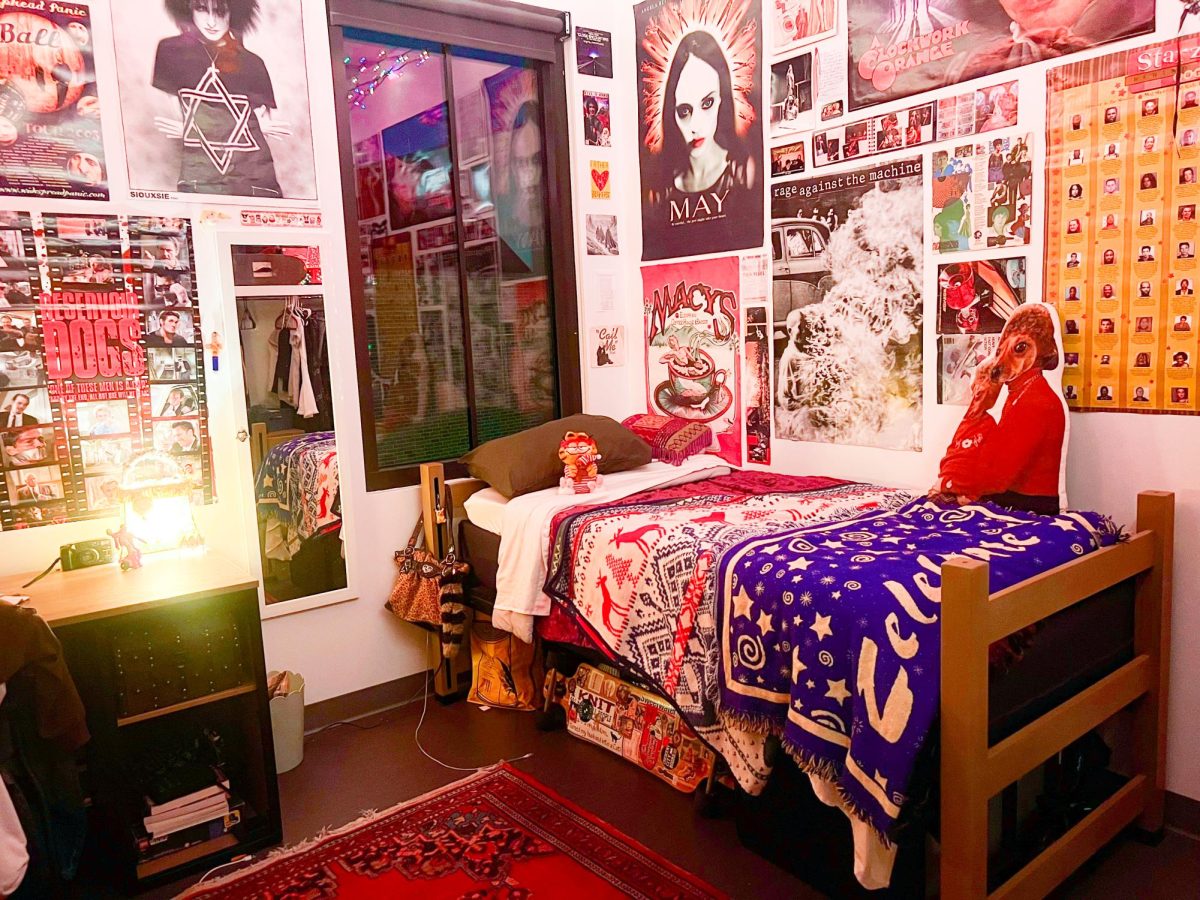Getting kicked in the head by Mark Ruffalo wasn’t exactly what accounting sophomore Aleksandra Golanka had in mind when she signed on as an extra for the filming of “Now You See Me.”
Yet when the director chose her from the crowd to stand by the police car that Ruffalo had to jump off of for the scene, she was directly in the path of the actor’s foot when he slipped off the car.
“He was very apologetic and sweet about it, definitely the friendliest actor I’ve met, but I should have asked him to buy me dinner to make up for it. Next time an actor kicks me in the head, I’ll remember that,” Golanka said.
Like Golanka, many Loyola students have begun to take advantage of the booming film industry in New Orleans by working as extras or even on film crews as production assistants.
The film industry is booming in New Orleans right now because in recent years, Louisiana lawmakers have created a special incentive for filmmakers to come work in the state after seeing the success that other states had been having with similar legislation.
According to Film New Orleans, the government liaison for all film and video projects in the city, New Orleans has become a popular destination for movie makers because of the state’s tax breaks for filming and its aesthetic location.
“The film production companies get a huge amount of money back for every dollar they spend here in tax credits, and they get back 30 percent of the salary of every person they hire here,” said video technology professor, Jim Gabour.
New Orleans is also unique because it offers many different types of settings in one city, Gabour said.
“The city is one big stage set for goodness sake. It’s a very versatile town as far as the kind of looks there are. It’s not just the French Quarter, you know, the suburbs and the Lakefront are all kind of generic American suburbs, there are areas in the Central Business District that are very generic downtown,” Gabour said.
It’s no wonder, then, that the Loyola community has begun to participate in the up and coming industry. According to Gabour, the industry isn’t as tough to break into as it would seem.
“The cool thing is that both the city and the state maintain really good websites for potential crew members to put their resumes online so that when the production companies come here, they can go through those and pick out people and hire them,” Gabour said.
“Once you actually get your foot in the door and you show enthusiasm and talent and intelligence, you very, very frequently get the chance to move up and get into different crews,” Gabour said.
The pay isn’t too shabby either. According to Golanka who has worked on numerous productions in the city, the pay is usually $88 for up to 10 hours, or $101.50 for up to 12 hours, unless filming goes into overtime.
“It’s such an awesome opportunity we all have living here that most people don’t take advantage of,” Golanka said.
Unfortunately, the industry’s presence in the city does have its drawbacks.
For English writing senior Lexi Wangler, film crews this summer have made it harder for her to get to her job as a server at Chophouse on Magazine Street.
“They’ve been making it hard to move around the city for weeks now. It takes me about 35 minutes more to get to work than it should,” Wangler said.
Crews filming “Pawn Shop Chronicles,” starring Elijah Wood, filmed directly in front of the restaurant this August, blocking off the entire Magazine Street block. “We had hardly any business that night because no one could get in, so I walked out with basically no money and this is my livelihood,” said Wangler.
Wangler isn’t the only one who finds the filming a nuisance.
“It does seem an intrusion at times to a lot of people. In spite of the glamour, some people just don’t want to be around it,” Gabour said.
Despite the disadvantages of filmmaking in the city, Loyola students are making their mark on the industry.
According to Gabour, numerous students from Loyola’s film classes have gotten full and part-time jobs in the industry right out of Loyola, whether they’re in front of or behind the camera.
“I’ve found that more and more students are really working to develop that career once they get their feet wet. All of the sudden that hunger and that passion for filmmaking just expands exponentially,” Gabour said.
Shannon Donaldson can be reached at smdonald@loyno.edu













